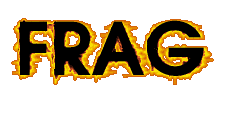Commands
Commands are Frag objects on which invocations can be dispatched
just by invoking the object name and arguments, but no method name
needs to be provided. (Internally, a command object is realized by
just implementing one *-dispatcher method (see Section
Dispatcher Methods: * and ?) and by having
itself as a class.)
Some Frag commands are predefined. Examples are set, get, while, for, etc.
For example, the invocation:
get a
invokes the object get (because the get object has get as a class).
get has a method * defined in Java. Hence this method is invoked. This method
then reads the variable a, and the whole invocation returns the variable value.
Commands can also be user-defined. Command is a class for defining Command objects
in Frag.
Each instance of Command has
the Command object plus itself (i.e., the instance) as classes.
In addition, the instances
have a * dispatcher (see Section
Dispatcher Methods: * and ?) that is defined via a method
cmd. This command method is executed with all arguments given to the command
instance, whenever the command is invoked. For reaching other methods of
the command -* must be used (see Section
Dispatcher Methods: * and ?).
The syntax for the cmd method is:
<cmdInstance> cmd <vars> <body>
The following defines a simple Command c, which just returns its argument:
Command create c -cmd {a} {return $a}
Now c can be used just like the predefined commands. For instance, the following
returns 1 2 3:
c "1 2 3"
Because the * dispatcher is used to define the Command, we must use -* to send
ordinary messages like set or get to c:
c -* set r 1
c -* get r
The code above returns 1.

